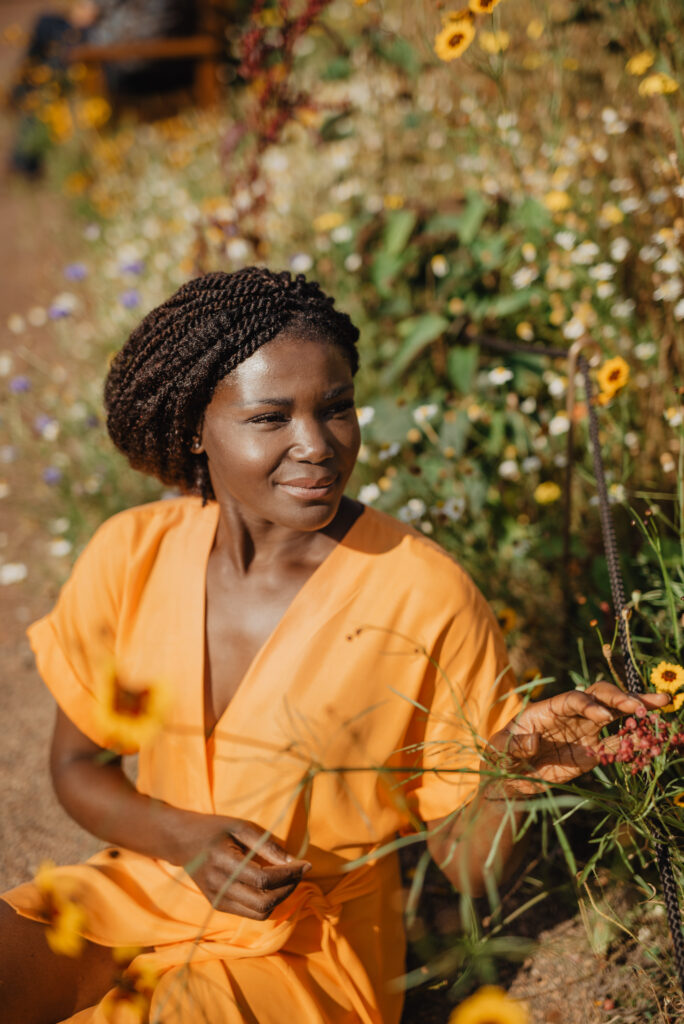Yuwa is a Science-based Naturopathic Practitioner, Nutritional Therapist and educator with a particular interest in women’s health, longevity, gut health and the impact of the microbiome on overall wellbeing.
Anchored in a whole-person approach, Yuwa works to identify and address the root causes of health concerns, while providing practical and sustainable solutions that align with an individual’s unique needs and lifestyle.
Yuwa brings a distinct approach to her practice, considering the rhythms, cycles, and stages of life that impact health and is committed to assisting her clients to reach their desired outcome whilst also gaining principles to maintain health, energy and overall well-being throughout life.
As an experienced lecturer and speaker, Yuwa is known for her ability to make complex material understandable and enjoyable, and she consistently engages in Functional Medicine training to continue to develop in her specialist areas.
Q&A:
1. What led you to holistic health? Was there a moment on your personal journey that you struggled with and found that your current area of expertise could help you and others?
I like to think of this field as my calling because in many ways it’s been a natural progression since childhood as I was then, very athletic, loved plants, was sensitive to the needs of people around me & when asked ‘what I wanted to be when I grew up’, I’d say ‘a doctor’.
In my teens I used to have painful periods, and in looking to resolve this I started to notice the impact of diet on my menstrual cycle.
At around age 15, I became very interested in psychology and women’s studies, and this along with nutrition, exercise and movement practices, and my love of nature is what I journey through life exploring, developing and sharing.
2. How can your specialist area support those considering, or already on a fertility journey?
The heart of naturopathic medicine is to take an in-depth whole-person approach to assessing and addressing one’s specific needs, whilst also promoting overall health and longevity. Due to this scope, it can offer support at any point of the fertility journey.
To illustrate this, if we first note that the body is made up of trillions of cells organised into systems (e.g. the reproductive or digestive systems).
Then starting microscopically at cellular health, a naturopathic nutritional approach can be used to protect and promote the health of reproductive cells (sperm and ovum).
On the next level, support can be given to encourage good functioning of the larger systems e.g. promoting balance within the hormonal system, assisting the detoxification process, optimising nutritional status and nourishing a healthy microbiome. Then ‘big picture’ considerations such as emotional well-being would also be recognised and supported. The whole process is personalised, so tailored to the individual/s needs whatever stage of the fertility journey they may be.
3. How do your clients integrate your practices alongside conventional medical treatments? How do the two co-exist?
Integrating naturopathic and functional nutrition practices with conventional medical treatments can create a comprehensive and synergistic approach to fertility support.
Nutrition and lifestyle plans can be designed so that they complement prescribed medications or treatments for example by preparing the body to respond better to treatment and mitigating potential side effects of treatments.
This approach can also improve overall reproductive health and the establishment of habits that support fertility during treatment can also create a solid foundation for a healthy pregnancy and post-partum period.
4. If you were speaking to your younger self what advice would you give her?
I would celebrate my younger self for following her inner guidance and encourage her to reach out and accept help much more often.
5. Do you have a personal mantra or favourite quote that you live by / inspires you? Please share if you would like…
One that I often share when leading a group health presentation is “To know and not do, is still not to know”. (I heard it at a coaching training that I did at the start of my career).
I like this as I believe it speaks to the world that we live in where we are bombarded with a lot of ‘information’ and can sometimes think that we know something because we’ve heard it before. Yet, if we don’t have the consistent ‘application’ required to reap the benefits in our life we’ve not yet experienced real knowing, which I see as the power of the ‘lived experience’.
6. Have you had any mentoring on your journey or someone that has guided you that you look up to?
I personally don’t subscribe to the idea of being ‘self-made’ in any area of life so I am aware of and very grateful for the ongoing guidance, tuition and support I have received throughout life. I have studied a lot and have had the good fortune to learn from brilliant and inspiring teachers and colleagues from Australia, the USA, the UK and Europe, many of whom I’m still in contact with now.
7. What do you think is the biggest challenge your female clients face when it comes to fertility or their general health?
I think that one of the biggest challenges many female clients face when it comes to their health is hormonal imbalance which can manifest in various forms.
It is important to note however, that this is not just related to reproductive hormones, but rather the hormonal system as a whole, which is comprised of several glands that regulate many functions in the body from energy production, blood sugar regulation, stress management, mood regulation and much more. This system is highly impacted by diet, lifestyle, the social and physical environment. Hence root causes of imbalance are often multifaceted and complex, requiring time and attention to address.
8. What excites you the most about SheWell’s mission to bridge medical and holistic approaches to fertility?
I believe that collaboration and integration (rather than competition and separation) is a potent blend that can facilitate improved outcomes in the lives of many people.
I’m very excited to be a contributor for SheWell.
9. What conversation do you feel we are not having as women and should be having when it comes to fertility and female health?
I see health and particularly female health from a lifecycle perspective, meaning that where we find ourselves today is both influenced by our past and also, influencing our future. So, rather than female health and fertility being a discussion that arises solely at the point a challenge is faced,I feel that an important conversation we need to have is about being proactive in understanding and supporting overall health, hormonal health and fertility from an early age and similarly from the age we are now, how can we look to support our ongoing health and longevity.
@yuwahealth
www.yuwahealth.com

